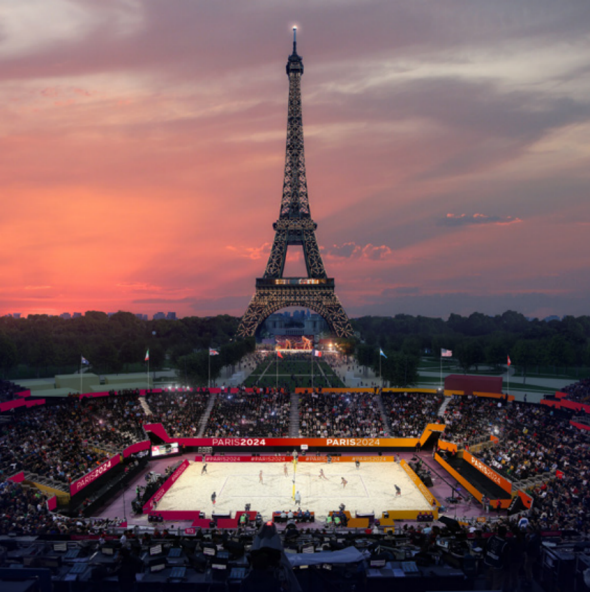This August is supposed to be all about Rio de Janeiro, but some Olympic visitors are already looking ahead to next September, when the International Olympic Committee will award the 2024 Summer Games. Representatives from the bidding cities—Paris, Rome, Budapest, and Los Angeles—are buzzing around the games trying to influence the 99 members of the IOC.
Andrew Ross Sorkin can’t understand what the fuss over hosting is all about, writing that Rio will “lose at least $4.6 billion” from mounting the Olympics. But “lose” isn’t the right word. Yes, Rio has spent that much on sports venues, other facilities, and operating costs, and the figure doesn’t even include road, rail, port, and airport infrastructure. Evaluating whether that amounts to a sound investment is a different problem entirely. Some of that money comes from private developers. Some comes from the state or national government. Who knows what will happen to the facilities when the spectacle ends, or how much money visitors will end up spending?
Controversy over spending isn’t the only thing that explains why representatives from four countries are running around Rio thinking they can do better. As Bent Flyvbjerg, an author of the 2016 Oxford Olympics Study, explained to me, a rising sensitivity to cost has been tempered by the persistence of Olympic special interests. “There’s a whole army of people who stand to benefit if the games are put on,” he said. That includes the stupendously wealthy IOC, of course, but also an array of local interests including banks, hotels, landowners, planners, boosters, politicians, developers, contractors, and building trades. “Even though the games don’t make money, it might be a good thing for the city that hosts it, if there’s a lot of national government money flowing into the city,” he added. In other words, economists may be souring on the Olympics, but there are coalitions of urban interests that still see them as an attractive deal.
Right now, the aspiring 2024 hosts are racing toward an October deadline to submit briefs to the IOC covering governance, legal issues, and financing—the meat and potatoes of an Olympic bid. Until then, we have only their initial bid books to go on. So, who’s in pole position right now?
Los Angeles, as I’ve written before, considers itself the professional Olympic host. It would be the only city besides London to have hosted three times, and its planners have promised a low-cost bid with an emphasis on existing, repurposed, and temporary infrastructure. (That’s a trend common to all four bids, actually.) It’s a huge city, with flexible infrastructure that can easily be repurposed for mega-events. It’s a safe pick for the games—if not a thrilling one.
Paris, even more than Los Angeles, has been on a spree of gigantic infrastructure investments and civic reinvention. Planners see the games as a high-profile way to boost the “Grand Paris” project, which is focused on integrating peripheral communities into Paris proper. Like Los Angeles, it promises a games predicated on reuse and temporary structures, though with a little more flash: The bid proposes a beach volleyball court in front of the Eiffel Tower and equestrian events at the Palace of Versailles. Like L.A., it’s a city that can handle big events. Like L.A., it comes with a global brand attached.
Budapest is the dark horse here. Tiny Hungary has about the population of metropolitan Paris or L.A., and fittingly, the Budapest bid is promoted as a national one with events across the country (and with state funding). (The Los Angeles Games would be entirely self-contained; Paris would make the soccer competition national and hold the sailing races in the port of Marseille.) The city and country have more to gain from the signal boost than any of the competitors. Budapest is the only one of the four cities that hasn’t hosted the competition, so its selection would score a point for the IOC’s goal of geographic diversity—and give those famously gloomy Hungarians something to get excited about.
Finally, there’s Rome, which elected a maverick mayoral candidate in Virginia Raggi a couple months ago. As recently as June, Raggi was saying the Olympics were not a priority for Rome, citing concerns about debt. She has since moderated that position, but anything other than a full-throated endorsement would probably doom the bid with the IOC, which likes to see undivided support from the hosts. (Boston and Hamburg both backed out earlier in this cycle, after popular opposition campaigns.)
That might be especially important here, since the Roman bid is inscrutably obsessed with offering visitors a nice “Italian welcome”—the phrase appears nine times in the bid.
